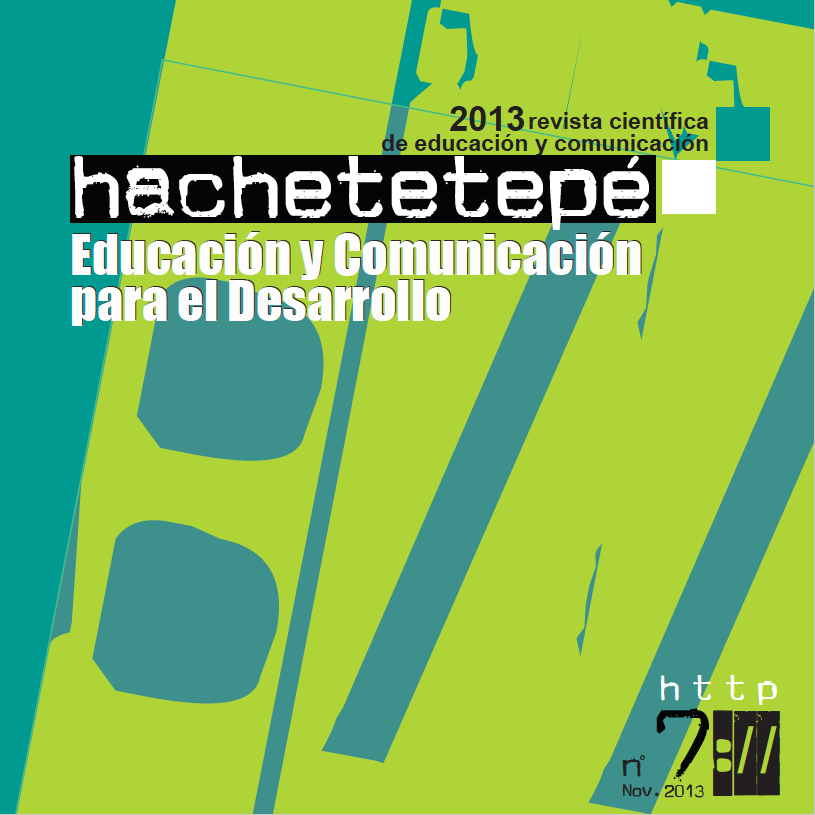Proyecto aula para todos: trabajar las competencias de la educación para el desarrollo en la formación no reglada

Informação
Resumo
El Proyecto Aula para Todos nace en un contexto socioeconómico en el que se ha reducido el presupuesto destinado a la educación. La escasez de recursos económicos frena y hace retroceder las líneas de actuación de la política educativa que pregonaba una mayor atención al alumnado con necesidades educativas específicas. El porcentaje de población inmigrante de la localidad de Puerto Real (Cádiz) hace imprescindible la necesidad de intervención. La base del proyecto es proporcionar clases de apoyo educativo al alumnado inmigrante e hijos/as de inmigrantes, nacidos en España, escolarizados en la villa. Lo que empieza con un grupo de seis niños de edades comprendidas entre los 4 y 9 años, de nacionalidades senegalesa y marroquí, acaba extendiéndose con la llegada de adultos y dos alumnos de nacionalidad pakistaní con necesidades urgentes de apoyo lingüístico en lengua española. Esta variedad de perfiles académicos, edades, familias, costumbres, culturas, lejos de desbordarnos, generó una dinámica multicultural de cooperación y de interés por aprender y por la vida del otro. Nació así, Aula para Todos.
Palavras-chave
Downloads
Como Citar
Licença

Este trabalho está licenciado sob uma licença Creative Commons Attribution-NonCommercial-NoDerivatives 4.0 International License.
Os autores que publicaram com esta revista, aceitam os seguintes termos:
1. Manterão seus direitos autorais e garantirão à revista o direito à primeira publicação de seu trabalho, que estará simultaneamente sujeita à Licença de Atribuição Creative Commons. Podem ser copiados, utilizados, divulgados, transmitidos e exibidos publicamente, desde que a autoria, url e revista sejam citados, e não sejam utilizados para fins comerciais. Nenhuma obra derivada é permitida.
2. Podem adotar outros contratos de licença não exclusiva para a distribuição da versão publicada da obra (por exemplo, depositá-la em arquivo telemático institucional ou publicá-la em volume monográfico), desde que seja indicada a publicação inicial nesta revista.
3. Divulgue seu trabalho pela Internet (por exemplo, em arquivos telemáticos institucionais ou em seu site) uma vez que o manuscrito seja aceito, o que pode levar a trocas interessantes e ao aumento das citações do trabalho publicado. (Veja O efeito do acesso aberto).
Hachetetepé. A revista científica de educação e comunicação não cobra taxa pela submissão de manuscritos ou pela publicação de seus artigos.
Referências
Aznar Minguet, Pilar y Ull Solís, Mª Angels (2009). “La formación de competencias básicas para el desarrollo sostenible: el papel de la Universidad”. Revista de Educación, número extraordinario 2009; 219-237. Disponible en: http://www.revistaeducacion.mec.es/re2009/re2009_10.pdf. (Consultada el 15 de julio de 2013.).
Comité de Ayuda al Desarrollo (2003). Examen de la Cooperación Española 1999-2001: Recomendaciones e Informe de la Secretaría del CAD. Madrid: Ministerio de Asuntos Exteriores y de Cooperación. En: Disponible en: http://www.aecid.es/es/servicios/publicaciones/Documentos/Otras_publicaciones_informes_cooperacion_espanola/Publicaciones/docu_coope_esp/ (Consultada el 10 de julio de 2013).
Coordinadora de ONG para el Desarrollo-España (2005): “Educación para el desarrollo: una estrategia de cooperación imprescindible”. En:
http://www.congde.org/contenidos/educacion-para-el-desarrollo-una-estrategia-de-cooperacion-imprescindible.html. (Consultada el 30 de junio de 2013).
COUNCIL OF THE EUROPEAN UNION: Council conclusions on education for sustainable development 3046th EDUCATION, YOUTH, CULTURE and SPORT Council meeting Brussels, 18 and 19 November 2010. En: http://consilium.europa.eu/uedocs/cms_data/docs/pressdata/en/educ/117855.pdf (Consultada el 02 de julio de 2013).
Developing Challenges and Opportunities for Policy Eurydice Report at School in Europe: Key Competences. En: http://eacea.ec.europa.eu/education/eurydice/documents/thematic_reports/145EN.pdf. (Consultada el 10 de julio de 2013).
Grasa, R. (1990): “Aprender la interdependencia: educar para el desarrollo”, en José A. Sanahuja (Coord.) Juventud, desarrollo y cooperación. Madrid: Cruz Roja Española; 97-107.
Ministerio de Educación y Ciencia (2004). “Una educación de calidad para todos y entre todos”. En: http://debateeducativo.mec.es/. (Consultada el 20 de julio de 2013).
Ortega Carpio, Mª. L. (2007): Estrategia de Educación para el Desarrollo de la Cooperación Española.
Secretaría de Estado de Cooperación Internacional. Dirección General de Planificación y Evaluación de Políticas para el Desarrollo. En: http://www.educacionparaeldesarrollo.org/. (Consultada el 03 de julio de 2013).
UNESCO (2005): “Contributing to a More Sustainable Future: Quality Education, Life Skills and Education for Sustainable Development. Focusing Resources on Effective School Health”.
William J. Platt, (1970): “Educating for development”", Education + Training, Vol. 12 Iss: 8; 296 –301.
Webgrafía
Aula SED. Biblioteca de recursos de Educación para el Desarrollo. http://www.educacionparaeldesarrollo.org/ (Consultada el 05 de julio de 2013).
Coordinadora ONG para el Desarrollo España. www.congde.org (Consultada el 03 de julio de 2013).
Development Education Exchange in Europe Project. www.deeep.org (Consultada el 03 de julio de 2013).
Manual Digital de Educación para el desarrollo. FONGCAM. http://www.fongdcam.org/paginas/recursos/ (Consultada el 05 de julio de 2013).
Pangea. http://pangea.org/ (Consultada el 10 de julio de 2013).
Proyecto Aula para todos. http://proyectoaulaparatodos.blogspot.com.es/p/descripcion-del-proyecto.html (Consultada el 03 de julio de 2013).
Organización de las Naciones Unidas para la Educación, la Ciencia y la Cultura.
http://www.unesco.org/new/es/education/themes/leading-the-international-agenda/education-for-sustainable-development/ y http://en.unesco.org/themes/education-21st-century (Consultada el 05 de julio de 2013).

